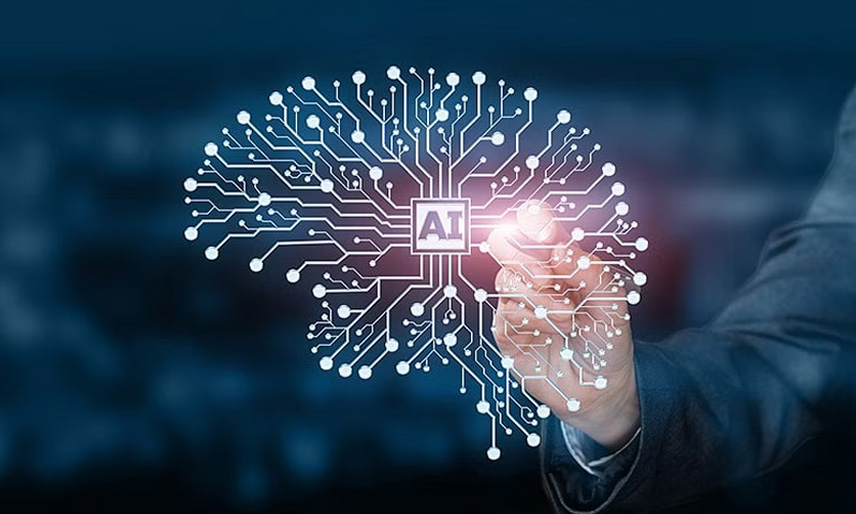When we discuss Intelligent Automation, we often ask ourselves, is this the next big thing in the tech industry? The answer is not a surprising one, as we all know how this is going to revolutionize the future of the workforce. For those who don't know what intelligent automation is, let me explain to you that it is a combination of artificial intelligence( AI), Robotic Automation Technology(RPA), and analytics technologies that together have the power to accelerate digital transformation and has the immense potential for large-scale industry impact. Intelligent automation is transforming the way businesses operate. We are experiencing a paradigm shift in how we work with intelligent automation's arrival. With its potential to automate repetitive tasks and make data-driven decisions, intelligent automation is helping organizations reduce costs, increase productivity, and improve the customer experience.
A Paradigm Shift In The Nature Of Work
In recent years, with enterprises becoming more futuristic, all business enterprises are experiencing a shift in work operations. One of the most significant shifts we have encountered in the business due to intelligent automation is enabling remote working by providing end-to-end encryption. For a business, the suitable operating model means executing the work at speed and delivering business outcomes that cater to the best need of its clients. With Intelligent automation, this challenge is handled so deftly that every business wants to experience this innovative solution to take their business to the next level. The technology identifies and processes extensive data and can automate the whole workflow, simultaneously learning and adapting. With the advancement of natural language processing, voice recognition, and machine learning technologies, the implementation of intelligent automation is also expanding in resolving business problems. Intelligent automation increases productivity and accuracy and reduces the risks of transactional errors like missed steps, incorrect date input, and application mistakes. With all this shift, there has been a fear that automation will take over people's jobs in the marketplace. However, the contrary is true, as automation will create new nature of employment instead of replacing them. By 2025, millions of RPA-related jobs will be generated globally, creating up to US$55 billion in economic benefits.
Challenges In The Workforce
As intelligent automation is setting its giant step in all business, job displacement has been people's biggest concern. As machines and algorithms become more capable of performing complex tasks, some jobs may become obsolete or require fewer human workers. As a result, automation can lead to job losses and increased unemployment, particularly in industries where intelligent automation is most prevalent, such as manufacturing, finance, and customer service. However, contrary to this, automation will compensate for the job loss by generating jobs of different natures, which will be related to RPA. It will replace human labor with machine labor, but the business has to face another challenge involving upskilling employees to suit the Automatic Intelligence requirements. Another challenge is the need for reskilling and upskilling. As automation takes over routine and repetitive tasks, employees must develop new skills to remain employable in the future job market. Upskilling can require significant investments from the employer in the training and education of their workforce. Another challenge that involves Intelligent automation is concerned with data privacy and security. As automation systems become more sophisticated and interconnected, they may become more vulnerable to cyberattacks, which could steal sensitive data and put businesses and individuals at risk. However, the accelerated development in the availability and accessibility of vast data analytics coupled with vast computing potential, readily available through the cloud, has come out as a solution for these challenges.
The Future Of Work With Intelligent Automation
Intelligent automation is sure to not only revolutionize the workforce but is here to stay as well. This technology has already started showing its usage implications on businesses and marking its long-term impact, revolutionizing the future. People will be required to reskill and up-skill themselves to walk hand in hand with intelligent automation. Supply chain issues and worker shortages have challenged the business due to its incredibly complex system and hence desperately needed to simplify its operating procedures. In logistics, the company can profit from automatically tracking the system in real-time and thus, consequently, reducing their liabilities and delivering the shipments safely and efficiently. The technology reduces the cost of the transaction by a large percentage and is also easy to install, configure and implement using a simple and automatic approach. Intelligent automation enhances the customer experience through its ability to adjust to demand fluctuations and negative workforce satisfaction. AI-based intelligent chatbots are one of the best examples of how intelligent automation can help revolutionize customer service. The best thing is that it can be implemented on any device or platform website and used for any industry. We are experiencing a significant shift toward data-driven automation. Data has become a new oil in digital technology. Businesses and organizations are beginning to prioritize data as a source of value as well as an essential fuel for intelligent automation and providing a helping hand in making a business decision based on data. One thing is sure here the future of intelligent automation is looking bright.
Conclusion
Intelligent automation is revolutionizing the way businesses and organizations use to operate and is bound to become an essential part of the future of work. While it presents some challenges, the benefits are clear, and its potential to increase efficiency, reduce costs, and improve customer experience is vast. As technology continues to evolve, we can expect to see even more exciting developments in the field of intelligent automation. Moreover, only that organization will thrive and grow in turbulent times those will learn to welcome Intelligent automation with open arms and embed it into the DNA of their organization.







